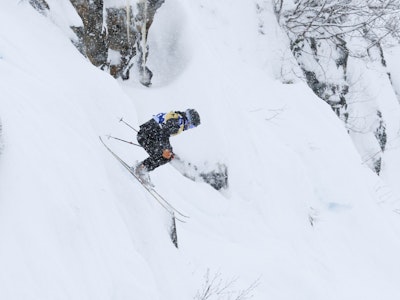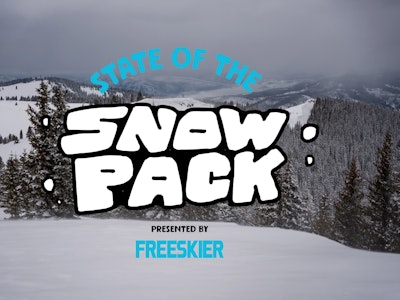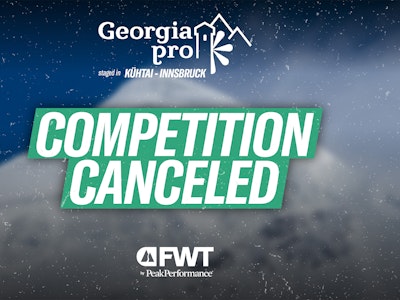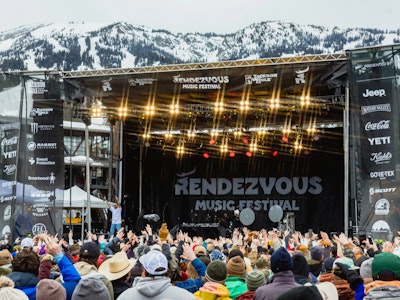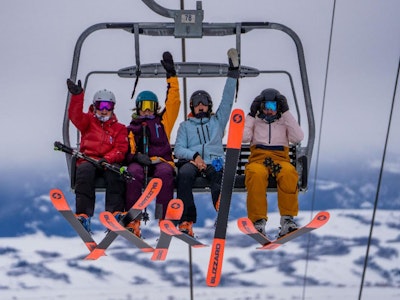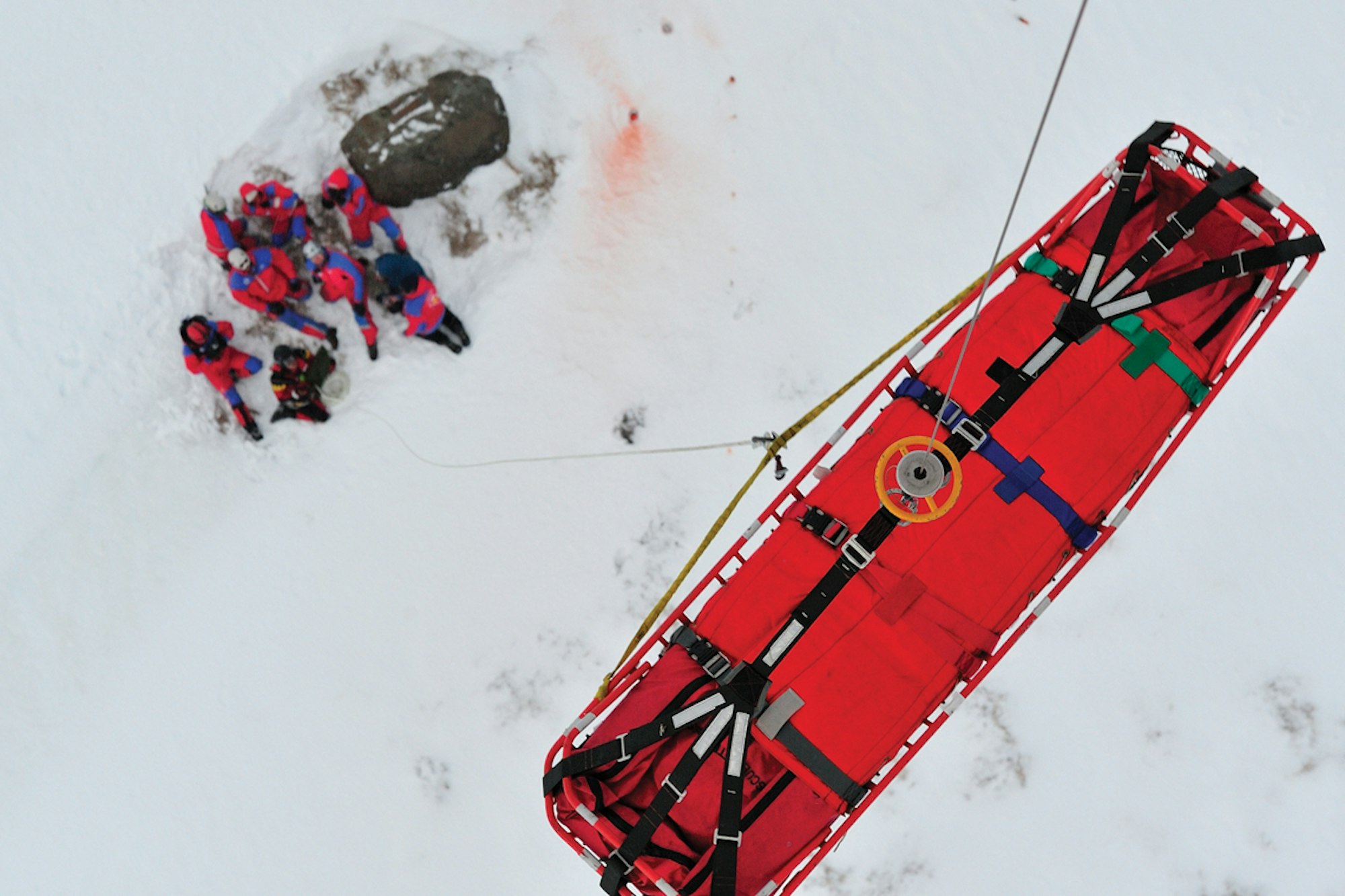

As Benjamin Franklin once said, “An ounce of prevention is worth a pound of cure.” Never is this truer than when venturing into the backcountry. There are serious geographic, health and financial implications that must be considered long before sticking skins to boards and heading out on a slog with your crew. It’s been proven time and again: Mother Nature doesn’t care about your gear, avy certification or how hard you rip.
“On a cold January day with just ‘considerable’ avalanche danger I learned that anything can happen on even the mildest terrain,” says Aspen-based skier, Colter Hinchliffe, recalling an outing on Colorado’s Red Table Mountain. “After one of the people in our party of three got the rug pulled from underneath him, he was swept into a very small sapling tree which snapped his tibia and fibula clean in half at the boot cuff. The other two of us were swift to the rescue and had a call out to search and rescue immediately. This proved to be a hiccup as the location we gave them was an iPhone pin and was off by 20-30 miles so they had trouble locating us. They got to us just as darkness was setting… our victim ended up getting extracted by Flight For Life.”
Beyond potential bodily harm, the financial cost of backcountry skiing is also considerable. Of course, there are measures like taking an avalanche safety course, equipping yourself with the necessary backcountry equipment and having adequate health insurance, but those are simply table stakes for any backcountry pursuit. Beyond those sunk costs, are you aware of the financial burden you might be accountable for if things go sideways and you require the local search and rescue (SAR) outfit to save you?
It can vary by state or even by county—but more on that later. Who picks up the bill for SAR extrications has been a divisive topic for several decades with no hard and fast universal solution in sight. On one hand, regions with a policy that passes SAR costs onto those needing their services contend that their policy discourages skiers and other outdoor enthusiasts from being reckless and getting in over their head for fear of a hefty bill. On the other hand, lawmakers in some regions are opposed to charging people who require help because it might dissuade victims from seeking such aid out of fear for the financial ramifications.
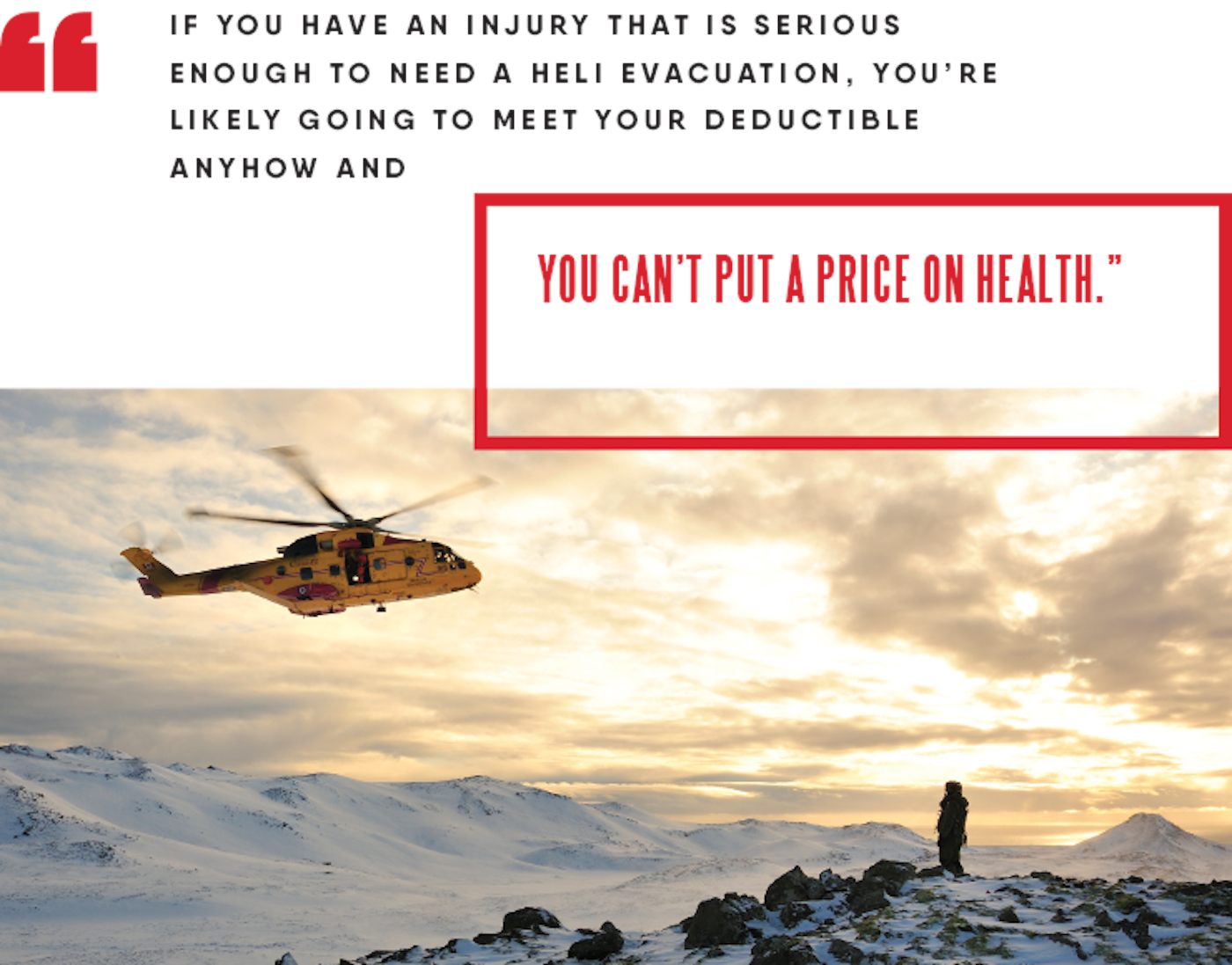
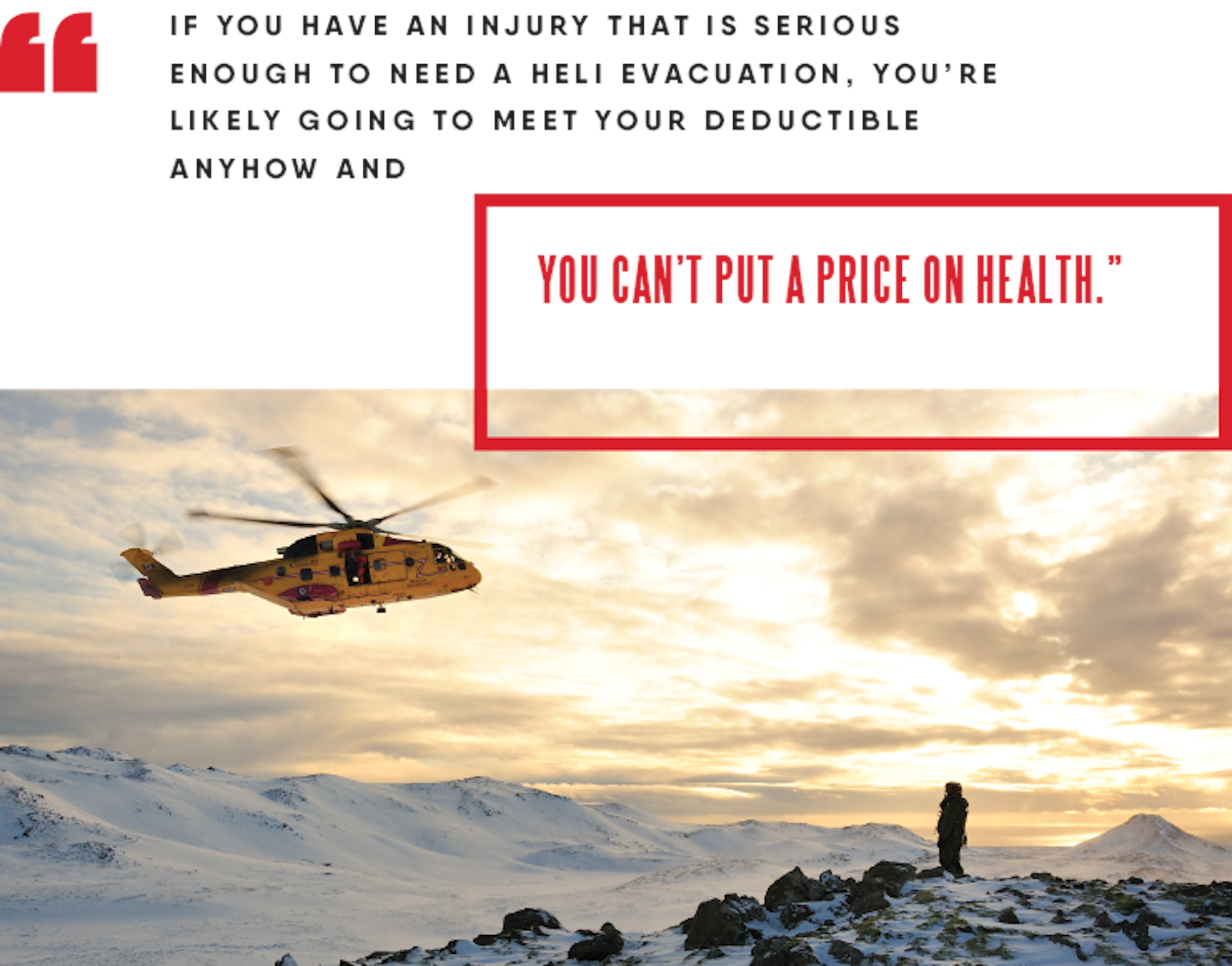
Even the most routine SAR recovery can require dozens of man hours, usually from volunteer rescuers, not to mention costly equipment and, in some cases, the use of a helicopter. These types of rescues can cost tens of thousands of dollars and often take place in lightly populated counties with small tax bases, yet draw hordes of adventure-seeking visitors. In situations where Flight For Life Colorado, specifically, is needed, the financial responsibility falls on a patient’s shoulders, rather than the SAR agency.
“We don’t charge the SAR agency for our assistance with either an aerial search or shuttling in rescuers via helicopter to a remote site,” explains Kathleen Mayer, program director for Flight For Life Colorado. “It’s a decision we made in conjunction with our hospital system years ago in recognition of the volunteer nature of SAR’s mission and the limited funds that are available to the agencies that provide those services.” While SAR fees didn’t apply in Eagle County, in the case of Hinchliffe’s part, the extrication process came with a price.
“In my county there is no charge for SAR, however there is a large price tag on the Flight For Life helicopter,” Hinchliffe explains. “That being said, if you have an injury that is serious enough to need a heli evacuation, you’re likely going to meet your deductible anyhow and you can’t put a price on health.”
So, what can you expect to pay in different states and countries if you require SAR recovery? In 2008, New Hampshire enacted a law stating that any person who acts “negligently in requiring a search and rescue response,” is liable to pay for it. In neighboring Vermont, as well as Colorado, the state only bills people who duck ski resort ropes and require SAR response during their out-of-bounds pursuit. Idaho has a similar law that can charge those who venture into areas closed to the public and California can charge individuals when a SAR mission surpasses $100. However, if you find yourself in trouble in a National Park or on land owned by the U.S. Forest Service, Uncle Sam typically will foot the bill for your rescue.
Much like in New Hampshire, if you require SAR attention in most of Europe, expect to pay. That’s why many European skiers carry special insurance to help offset that cost. This unique insurance can go for as little as $30 per year and the funds go towards training and equipping rescue teams. Some states like Utah, New Hampshire and Colorado are offering similar “SAR card” programs. If you’re looking for a nationwide program, check out the American Alpine Club’s domestic rescue benefit that reimburses members up to $5,000 if they’re charged for a SAR recovery or similar service. Another option is to purchase a SPOT satellite text messenger ($169.95 MSRP), which comes with an insurance plan worth $100,000 in SAR insurance with an annual subscription.
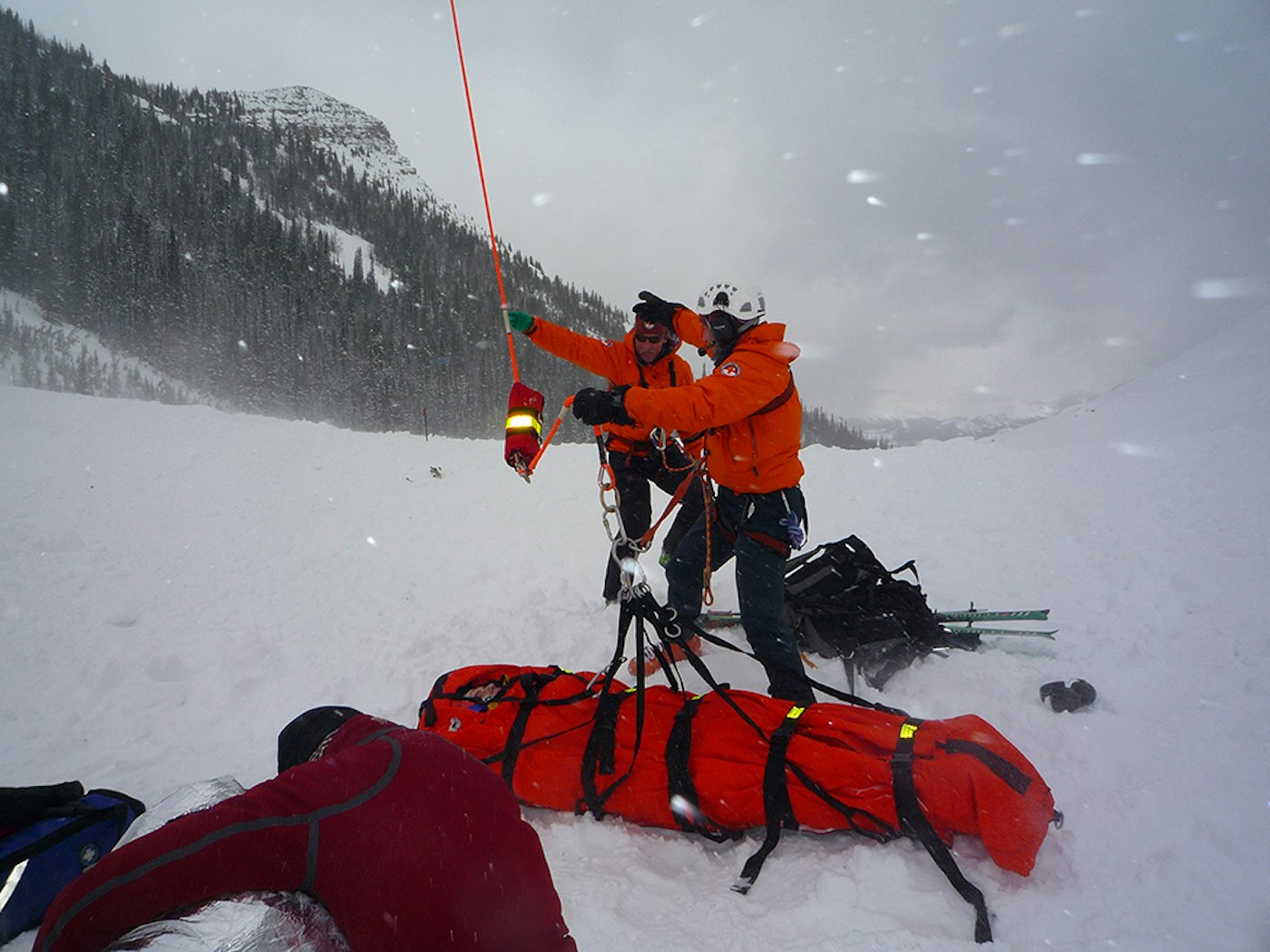
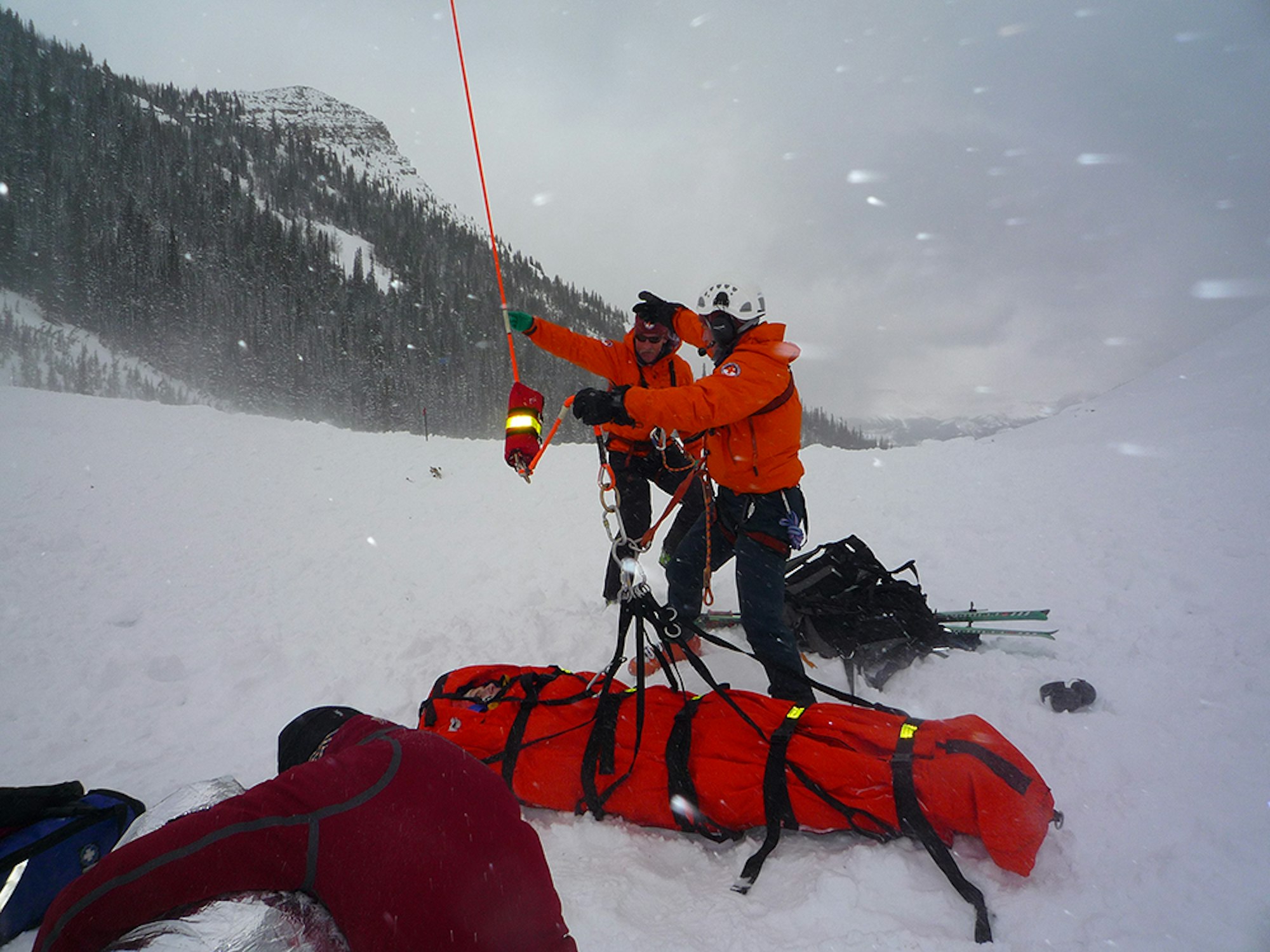
Before embarking on a backcountry trek or venturing into the sidecountry from your favorite resort, make sure you know what you’re getting yourself into. Of course, you need to carry the proper equipment and ski with a group that’s well-trained but you also must know the laws of the region. If you do find yourself or a friend injured in the backcountry, don’t delay and make the call for SAR evacuation—no matter what you think it might cost you.
“You have to throw the money factor out the window and do what it takes to get yourself to the hospital quickly and safely,” Hinchliffe said. “Then you can get your mending process started so you can get back out there and not do it again.”
Photos by Master Corporal Johanie Maheu, Dept. of National Defense/Canadian Armed Forces. This story originally appeared in the December issue of FREESKIER (Volume 20.3), The Backcountry Issue. Click here to subscribe and receive copies of FREESKIER Magazine delivered right to your doorstep.

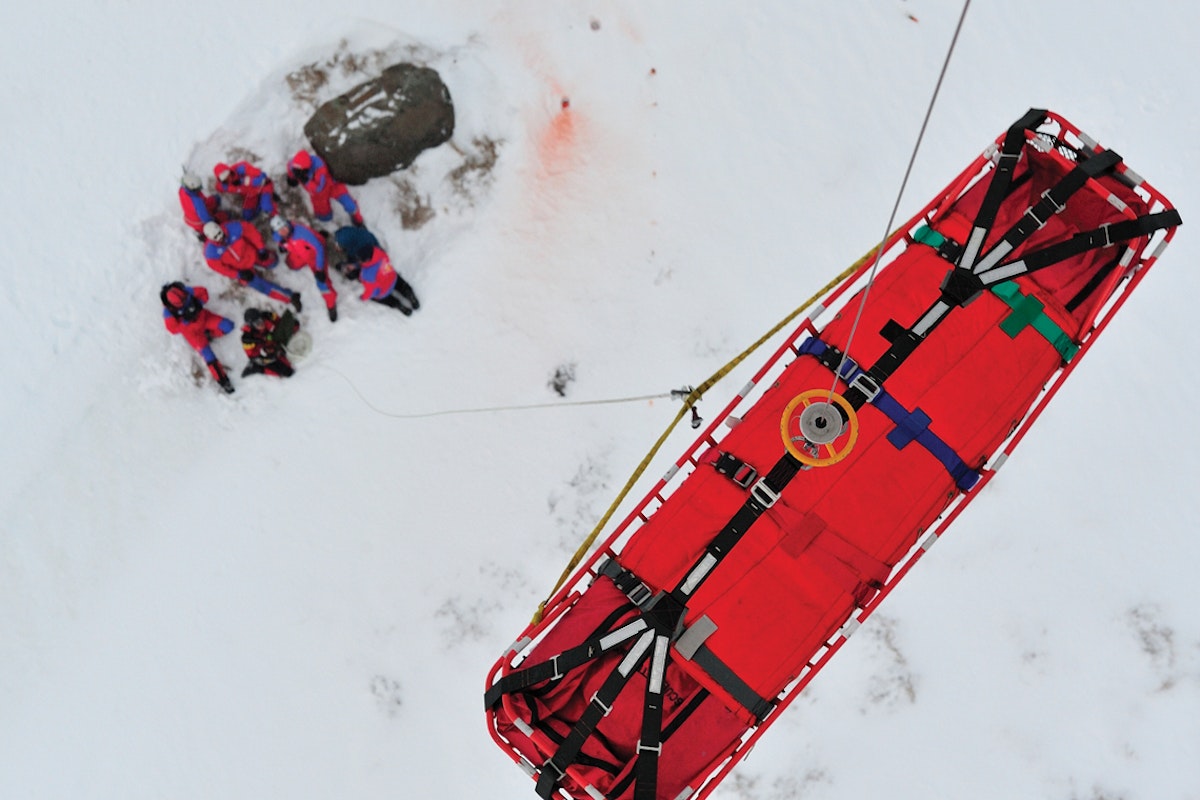
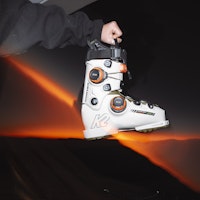

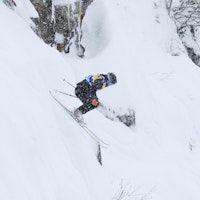
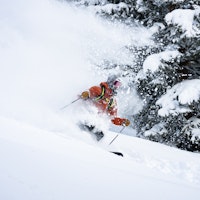
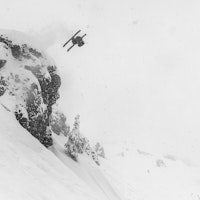
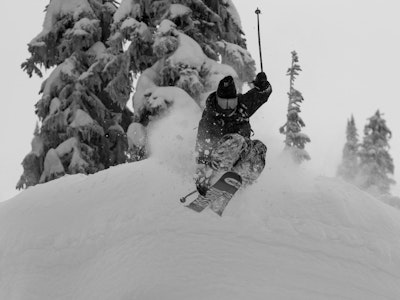
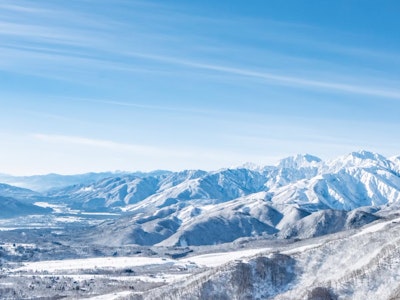
![[GIVEAWAY] Win a Limited Edition FREESKIER Hat](https://www.datocms-assets.com/163516/1772568976-3x4a9169.jpg?auto=format&w=400&h=300&fit=crop&crop=faces,entropy)
